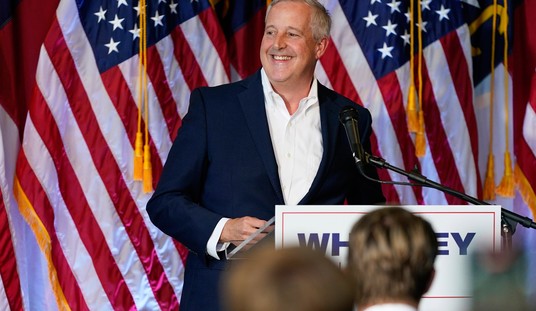To combine a few old chestnuts into one grand expression of Whiskey Tango Foxtrot amazement: those who refuse to learn from history are condemned to repeat it, first as tragedy, then as farce. The Washington Post brings word that President Obama wants another crack at the same policies that nearly crashed the financial system of the Earth in 2008, not coincidentally fueling his own rise to power:
The Obama administration is engaged in a broad push to make more home loans available to people with weaker credit, an effort that officials say will help power the economic recovery but that skeptics say could open the door to the risky lending that caused the housing crash in the first place.
President Obama’s economic advisers and outside experts say the nation’s much-celebrated housing rebound is leaving too many people behind, including young people looking to buy their first homes and individuals with credit records weakened by the recession.
In response, administration officials say they are working to get banks to lend to a wider range of borrowers by taking advantage of taxpayer-backed programs — including those offered by the Federal Housing Administration — that insure home loans against default.
Housing officials are urging the Justice Department to provide assurances to banks, which have become increasingly cautious, that they will not face legal or financial recriminations if they make loans to riskier borrowers who meet government standards but later default.
Any banker who believes those assurances is a fool, in dire need of a fact-finding junket to Cyprus.
This is exactly what caused the great financial meltdown: government urging banks to make risky loans in accordance with leftist ideology. Everything else radiated from that decision, which leftists protected by lying through their teeth about the “success” of the programs, right up until they crashed. It absolves financial institutions of no subsequent wrongdoing to be clear-headed about what started the whole cascade of disaster.
And here I thought we were all opposed to taxpayer backing of “too big to fail” institutions! Instead, we’ve got Obama writing blank checks to big banks, and telling them not to worry if all those risky loans default. This is nothing more than “house welfare,” camouflaged in its early stages as a loan program, but destined to end up as taxpayers buying houses for those the political class deems worthy.
The difference between now and 2008 is that Obama’s people promise to implement their agenda more carefully, and with a bit less heavy-handed coercion. Alarms are being sounded, but it’s tough to hear them through thick earmuffs of ideology:
Obama pledged in his State of the Union address to do more to make sure more Americans can enjoy the benefits of the housing recovery, but critics say encouraging banks to lend as broadly as the administration hopes will sow the seeds of another housing disaster and endanger taxpayer dollars.
“If that were to come to pass, that would open the floodgates to highly excessive risk and would send us right back on the same path we were just trying to recover from,” said Ed Pinto, a resident fellow at the American Enterprise Institute and former top executive at mortgage giant Fannie Mae.
Administration officials say they are looking only to allay unnecessary hesitation among banks and encourage safe lending to borrowers who have the financial wherewithal to pay.
“There’s always a tension that you have to take seriously between providing clarity and rules of the road and not giving any opportunity to restart the kind of irresponsible lending that we saw in the mid-2000s,” said a senior administration official who was not authorized to speak on the record.
The administration’s efforts come in the midst of a housing market that has been surging for the past year but that has been delivering most of the benefits to established homeowners with high credit scores or to investors who have been behind a significant number of new purchases.
“If you were going to tell people in low-income and moderate-income communities and communities of color there was a housing recovery, they would look at you as if you had two heads,” said John Taylor, president of the National Community Reinvestment Coalition, a nonprofit housing organization. “It is very difficult for people of low and moderate incomes to refinance or buy homes.”
There doesn’t have to be any “tension” if we just stop using government power to interfere with actuarial calculations, and let banks make rational decisions about who they loan money to. You can find a thousand quotes from congressional Democrat con artists and clueless government officials assuring America that they had such “tensions” well under control, right up until 2008.
This talk of jump-starting the housing recovery by flooding the market with easy loan money is putting the cart before the recovery horse. Home ownership is indeed a step on the road to prosperity, provided buyers – especially first-time buyers – invest in homes they can truly afford. They need the advantages that would make them good credit risks under old-fashioned rational assessment: stable long-term jobs, reasonable debt loads, stable families, and so forth. You know, the things liberal ideology does not provide. And the system will become even less able to sustain those advantages if taxpayers get stuck with more bailouts, while another financial crisis makes banks even less willing to risk money on consumer loans.
Prosperous times bring the accumulation of private wealth through widespread home ownership. Manufacturing widespread home ownership through financially unsustainable government policies does not conjure prosperity. How many more “bubbles” must we allow the political class to create before this truth is fully accepted?













Join the conversation as a VIP Member